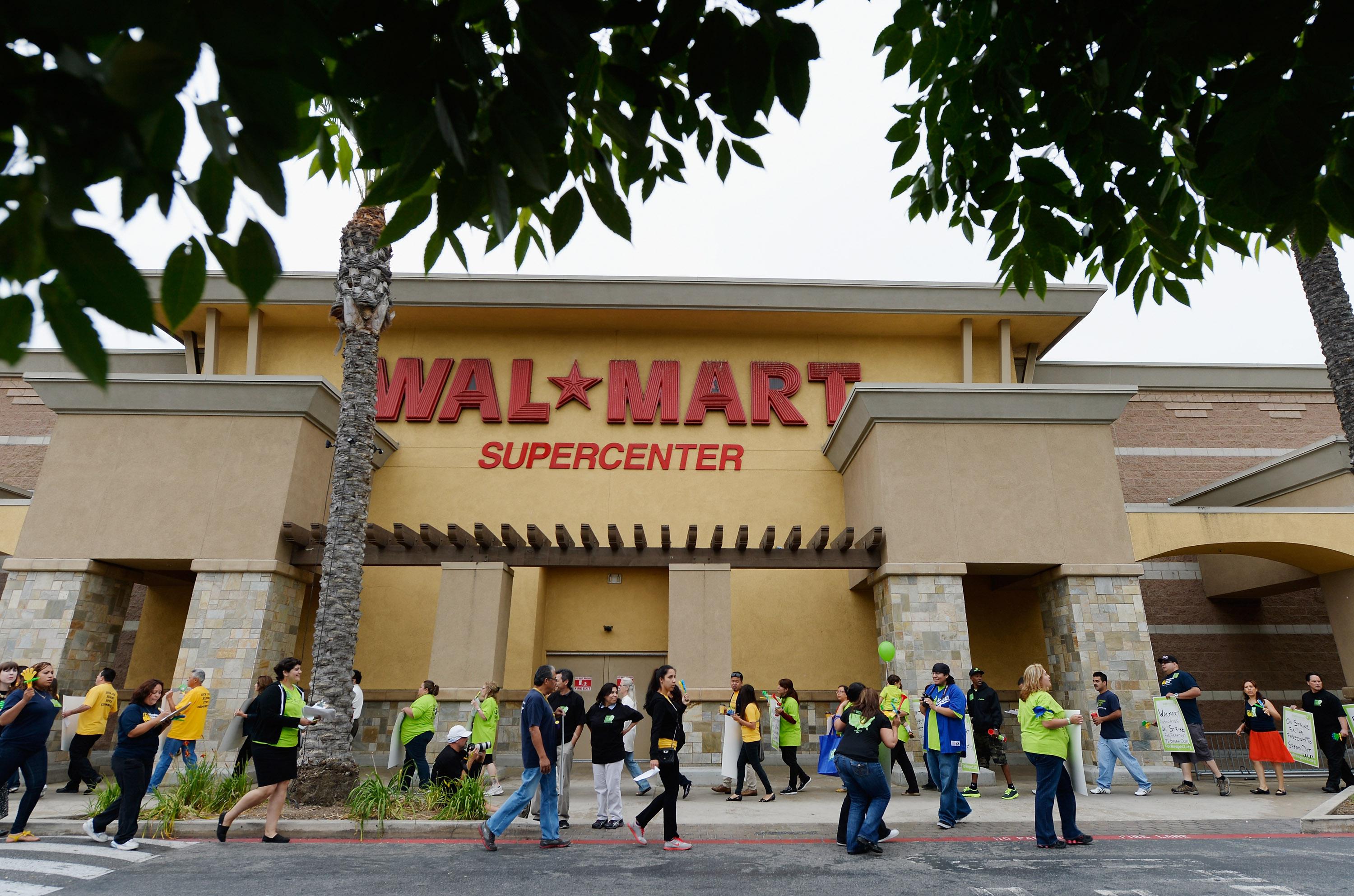Washington, D.C., has become the latest front in America’s Wal-Mart wars. A D.C. Council effort to get the store to pay higher wages to its workers appears to be backfiring as Wal-Mart responds to new legislation by canceling three of its six planned stores. But is it backfiring?
The back story here is that Wal-Mart has run out of growth opportunities in its traditional markets and is trying to go after more urban markets. That includes a plan–announced with much fanfare a little while back–to open six stores in D.C. The company knows that it faces a lot of political opposition, primarily but not exclusively from the labor unions that represent workers at traditional supermarket chains, so they made sure to pick sites where they could build stores as a “matter of right.” But nothing is really a matter of right in urban real estate development, so a labor-backed group called Respect D.C. has been mobilizing various anti-Wal-Mart initiatives. The one they came up with that got legislative traction was the Large Retailer Accountability Act, which, rather than increasing D.C.’s minimum wage, would create a special higher minimum wage of $12.50 an hour for retail stores that are branches of large chains with more than $1 billion in sales and 75,000 square feet of retail. In principle, that could apply to various companies but in practice it’s basically just a law saying that a higher minimum wage will apply to Wal-Mart than to other employers in the city.
Wal-Mart, naturally, is not thrilled and in response says it is going to cancel three of its planned stores.
One possibility is that Wal-Mart is simply bluffing. They’d obviously prefer to abide by the city’s minimum-wage law than pay a special higher minimum wage, but at the end of the day it may be profitable to construct the stores anyway if the D.C. Council refuses to back down. But assuming Wal-Mart’s not bluffing, there are a few ways you can look at this. Obviously insofar as the purpose of the bill was to help low-wage workers in D.C., killing off three stores and the job opportunities that would follow from that would be a serious misstep. But insofar as the purpose of the bill is to help low-wage workers in D.C., the very narrow applicability of the law seems hard to understand. A special minimum wage exclusively for big-box stores that are subsidiaries of big companies looks an awful lot like a bill whose purpose is protect the financial interests of incumbent businesses who don’t want to compete with Wal-Mart. From that point of view, getting Wal-Mart not to open the stores is much better than actually getting Wal-Mart to pay the higher wage.
Most likely there’s a mix of views on both sides. The D.C. Council has tweaked this bill so many different times that it’s clear that different members aren’t in total agreement with themselves about what it is they’re really trying to accomplish. For Wal-Mart, meanwhile, threatening not to open the stores is such a no-brainer as a bargaining tactic that they probably haven’t even really decided whether or not they’d carry out that threat. But I do think councilmembers should consider starting over again. If they think a higher minimum wage would be good for the city, then they should raise the minimum wage. If they think a $12.50 minimum wage would crate a lot of unemployment, then they should raise the minimum wage but raise it to something less than $12.50—there’s a big gap between that and the generally applicable $8.25 wage. A special minimum wage that applies to retail workers but not janitors or restaurant workers and to Wal-Mart but not the Gap doesn’t make a ton of sense.
